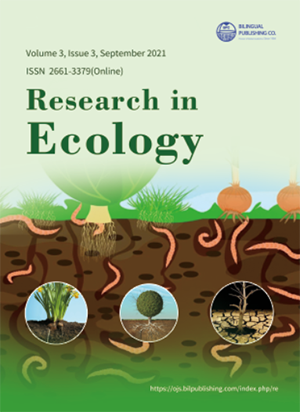
Opportunities and Challenges of Rehabilitating Degraded Land in the Case of Cheha Woreda, Gurage Zone, SNNP Region, Ethiopia
DOI:
https://doi.org/10.30564/re.v3i3.3668Abstract
The research was conducted in chaha wereda gurage zone SNNP region of Ethiopia. The aim of the study was to assess opportunity and challenges of degraded land rehabilitation. From the total population of the study area 20% (73) respondents were selected in order to achieve the objective of the study at hand, for the study both primary and secondary data was generated. The primary data collection was started with a preliminary survey followed by a key informant interview, focus group discussion, and household survey with questionnaires. The secondary data were collected from books, unpublished thesis, project report, and workshops, open ended questionnaire and checklists for interview. The households were selected using stratified sampling technique (Cochran) sample size formula the process of analysis of the study was carried out using qualitative description and quantitative analysis. The collected data were analyzed using descriptive statistics, the quantitative data were analyzed frequency and percentage when appropriate the qualitative data were discussed to substantiate the study. And the results were expressed in the form of tables and graphs. The findings of the study indicated that limited labor availability, high cost of maintenance. Lack of knowledge, soil conditions, high surfaces runoff, poor vegetation coverage, poor monitoring and evaluation, poor implementation and poor training on the technology use are major challenges.
Keywords:
Land rehabilitation, Challenges, OpportunitiesReferences
[1] Alemneh Dejene (2003) .Integrated Natural Resource Management to Enhance Food Security, the Case for Community Based Approaches in Ethiopia, Environment and Natural ources Working Paper No. 16, FAO, Rome.
[2] Berry L. (2003). Land Degradation in Ethiopia: Its Extent and Impact Commissioned by the GM with WB Support Benin, S. (2002). Policies Affecting Land Management, Impact Use and Productivity: Land Distribution and Tenure in the Highlands of Amhara region. ILRI paper.
[3] Belayneh A. (2005). Land Degradation Assessment and Evaluation of Current Land Use and Soil Conservation Structures at Upper Chena Catchments, Southern Gondar, Ethiopia. MA Thesis (unpublished); Addis Ababa University, Addis Ababa, Ethiopia.
[4] FAO (Food and Agriculture Organization) (1996). Ethiopian Highlands Reclamation Stud (EHRS). Final Report.
[5] Kruger.H, Berhanu Fantew, Yohannes Gebre Michael and Kefeni Kejela(2001). Inventory of Indigenous Soil and Water Conservation Measures on Selected Sites in the Ethiopian highlands, University of Bern, Center Development and Environment.
[6] Lament (2010). Ethiopia’s Agricultural Sector Policy and Investment Framework (PIF) 2010-2020.
[7] Tesfaye Tanto and Fnuel Laekemariam (2019). Impact of soil and water conservation measures on soil properties and wheat productivity in Southern Ethiopia.
[8] Tilahun A, Takele B and Endrias G (2001). Reversing the degradation of arable land in the Ethiopian highlands. Managing Africa’s soils No. 23. International center for research in agro forestry. pp.1-20.
[9] WMO (World Meteorological Organization) (2005). Climate and land degradation. http://www.wmo.int/web/wcp/agm/agmp.
Downloads
How to Cite
Issue
Article Type
License
Copyright © 2021 Tekilil Wolde

This is an open access article under the Creative Commons Attribution-NonCommercial 4.0 International (CC BY-NC 4.0) License.




 Tekilil Wolde
Tekilil Wolde





